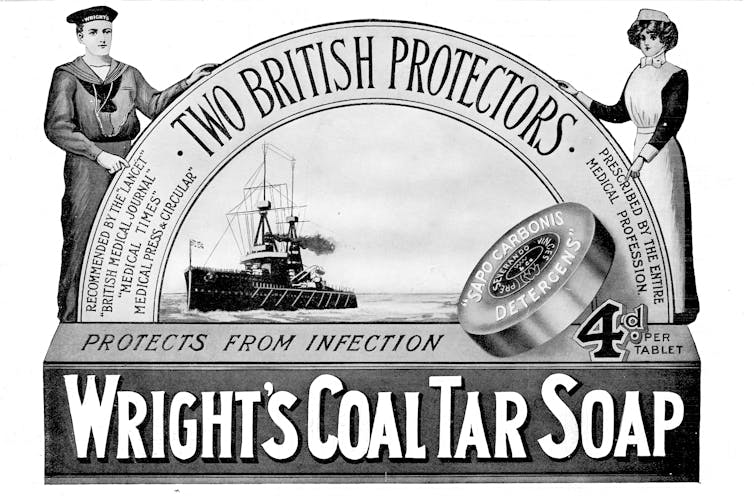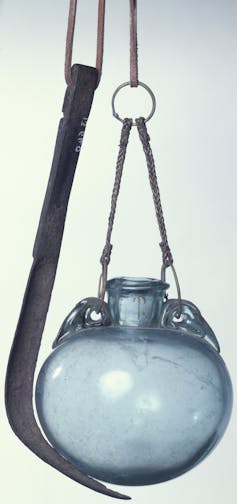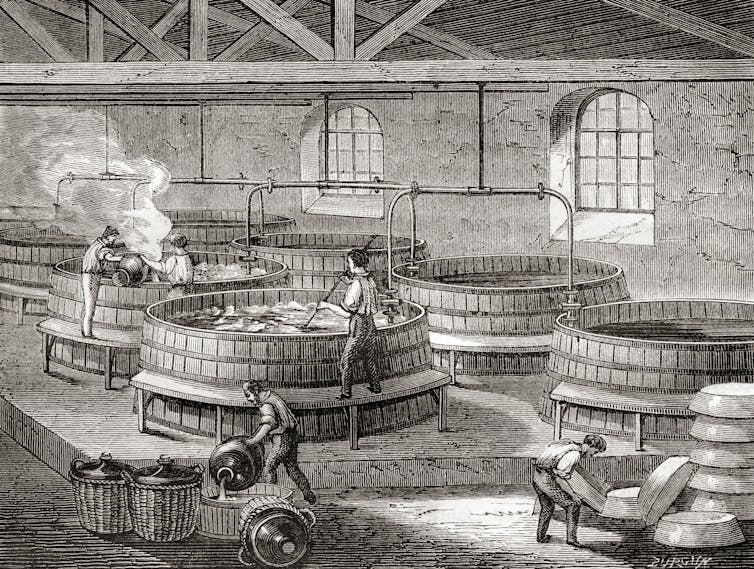This site is maintained by Henry Welman, former provincial co-ordinator (2017-2022) for physical and technical sciences in the Free State, South Africa. Please read the disclaimer at the bottom of the posts.
Thursday 31 December 2020
New Year 2021
Thursday 24 December 2020
Sunday 20 December 2020
The 'Great' Conjunction of Jupiter and Saturn
 |
| (C) NASA / Bill Ingalls |
The previous time Jupiter and Saturn were so close was in 1623, only 14 years after Galileo built his first telescope. In the Southern Hemisphere, the 21st of December is also the shortest night.
Video 1
Video 2
Video 3
Tuesday 15 December 2020
Recovery ATPs for 2021
The Department of Basic Education released these documents middle December 2020. They are available on the Covid-19 page. Click here to go there. Teachers may want to familiarise themselves with the documents. They will be discussed and explained during the first series of start-up meetings in 2021.
Wednesday 25 November 2020
Let's start looking at the future
 |
(C) https://www.needpix.com/photo/1294077/ |
From 2021 teachers and learners will have the extra responsibility to catch up on crucial grade 10 and 11 topics that were not taught in 2020 due to Covid-19.
From the side of the FSDoE, we will also collect information on outstanding grade 10 and 11 topics. In due course, look out for links to complete online forms concerning this.
Sunday 22 November 2020
Best wishes for the final grade 12 exams in Physical and Technical Sciences!
 |
| (C) https://pixabay.com/users/mohamed_hassan-5229782 |
With today's question papers, the grade 12 learners of 2020 have completed their Physical and Technical Sciences. We hope you have enjoyed the journey through a small part of Physics and Chemistry.
Friday 20 November 2020
Examination time 2020
Best wishes to all learners. Your teachers have spent countless hours to help you, but when you sit for the examinations, it will be only you. Your effort! Your input! Therefore, it is worth the while to prepare as best as possible. Remember that your best is enough. Don't get too worked up because of the examinations.
IBP broadcasts of the University of the Free State
The second round of exam preparation broadcasts for grade 12 are in November. The YouTube links for paper one, and the broadcast slots for paper two are given below:
Technical Sciences Paper 1: Click here
Physical Sciences Paper 1 Part 1: Click here
Physical Sciences Paper 1 Part 2: Click here
Physical Sciences Paper 2: Click here
Developmental/Revision lessons for grade 11 are in November. The YouTube links for electrostatics and the broadcast slots for electric circuits are given below:
Electrostatics Part 1: Click here
The first round of grade 12 exam preparation broadcasts took place in October. They can be accessed with the following YouTube links:
Physical Sciences Paper 1 Part 1: Click here
Physical Sciences Paper 2: Click here
Technical Sciences Paper 1: Click here
Technical Sciences Paper 2: Click here
Saturday 14 November 2020
New norms for Continued Professional Teacher Development (CPTD)
Teachers - take note!
 |
| (C) https://www.needpix.com |
The COVID-19 pandemic has necessitated new ways through which teachers can engage in professional development. Due to this, SACE has amended the CPTD point scheme to accommodate professional development activities via virtual meetings, engaging in electronic media, online activities, etc. Click here for circular LTA 5 of 2020 for more information.
Thursday 15 October 2020
Science Convention 2021
However, we are planning to go ahead full steam to have our usual Physical Science Olympiads for grades 11 and 12 learners in 2021, from which the learners and teachers will be chosen to attend the convention at the North West University.
The staff at NWU are passionate about their research and subject matter. Hence, follow the links below to get information about the faculties normally involved in the convention. The NWU is serious about the development of young people. Feel free to share this information with learners to encourage their interest in the fields. It will also empower them to make an informed decision about their studies and a satisfying career in the Natural Sciences.
Click below for more information about the following faculties at NWU:
Engineering
Talis 2018: South Africa Country Report
Interesting reading stuff about teachers and principals as lifelong learners.
Click here to access the document.
Tuesday 29 September 2020
High, middle and low road scenarios in schools
A video is also available to explain the circular and the different scenarios to help teachers cope with the rest of 2020 in so far assessment, etc. is concerned.
This material is available under the Covid-19 documents under "Pages". The picture below shows what you must look out for.
Monday 28 September 2020
Wednesday 23 September 2020
Tuesday 11 August 2020
DBE Guidelines For Work From Home and Alternative Work Arrangements
DBE has released a document with more information about working from home, alternative work arrangements, remote teaching and learning, online teaching and learning tools, teaching via radio and television, etc. Click here to access this document.
Remember that the Free State Department of Education has three websites that can help with this. Here they are:
Remote Teaching and Learning FOR TEACHERS
Remote Teaching and Learning FOR PARENTS
Remote Teaching and Learning FOR LEARNERS
Sunday 9 August 2020
Happy Women's Day
Today is a reminder for every human being in the world to love, respect and admire women. They deserve it. Happy Women’s day!
Friday 7 August 2020
In Memoriam: K Ramosena
Mr Ramosena was previously a Physical Science teacher and lately a circuit manager in the Motheo District. Our sincere condolences to the family, friends and colleagues of Mr Ramosena.
E-learning from Ligbron Academy of Learning
A broadcast schedule from Ligbron Academy of Technology for grade 11 Physical Sciences and Mathematics content was recently circulated. The lessons will start on Tuesday, 11 August. Click here for the timetable and more information on how to access the material. Click here to read more about Ligbron Academy of Technology.
We thank the staff of Ligbron Academy of Technology for this initiative and service to the learners of South Africa.
Wednesday 5 August 2020
In Memoriam: S A Mbhele
Mr Mbhele was a staff member at Oziel Selele Comprehensive Secondary School in Bothaville/Khotsong.
We will certainly remember Mr Mbhele for his kind and helpful personality. Our sincere condolences to Mrs Mbhele and family!
September Exam Timetable for Grade 12
The dates are available on this website's calendar. Go to the "Dates for teachers" link under "Pages".
Click here to access the official circular.
Thursday 30 July 2020
Setting the Scene for South Africa’s Digital Aspiration
Sunday 26 July 2020
19th World Conference on Mobile, Blended and Seamless Learning
2-4 November 2020 in Cairo!
The interesting option is that online presentations will be available. Click here for more information.
Friday 24 July 2020
Online teaching hints
 |
| Image by chenspec from Pixabay |
- Record your lectures – don’t stream them
- Show your face
- Keep videos short
- Test out slides
- Use existing resources … and make sure they’re open access
- Give specific instructions
- Provide interactive activities
- Set reasonable expectations
- Use auto-checking to measure attendance
- Use group communication carefully
- Let students take control
- Don’t hide your feelings
- Repeat
Tuesday 21 July 2020
Converting a pdf document to an MSWord document
1.3 An "Open" window will show up. Browse to find the folder where your pdf file is. Select the pdf file you want to convert. In the Open window, ensure that you change the type of files you see (bottom right-hand corner of the window).
1.4 Click OK and there you go!
2. When MSWord is not open.
2.1 Launch/open MSWord. This is what I then see on my machine.

Friday 17 July 2020
Free State Amended Documents Related To The Revised Annual Teaching Plans Are Available
 |
| Image by Dmitry Abramov from Pixabay |
Important information to take note of in addition to the mediation that was done before.
Applicable on all grade 10 to 12 teachers.
The Covid-19 National Revised Annual Teaching Plans (ATPs) for grades 10 to 12 were modified to be in line with the latest school calendar (see this page for the dates).
Friday 26 June 2020
Friday 12 June 2020
Amended School Calendar for 2020
The amended school calendar in view of Covid-19 is available. It was published in the Government Gazette, volume 660, number 43431.
Go to "Pages" and click on "Dates for teachers 2020" to see the new dates.
Wednesday 10 June 2020
Soap! We hear so much about it during the Covid-19 period
Here is a very interesting article about soap, and its history by Professor Judith Ridner, Professor of History at the Mississippi State University. The article was first published in The Conversation.
Physical science teachers have the responsibility to widen the worlds of their learners, and here is a good opportunity. Apart from teaching the prescribed content, it does make a difference in their lives to talk "other issues". Use the links in the article to go to other interesting reading material as well.
I have also prepared a pdf file of this article. You can download it here.
Enjoy!!
The dirty history of soap

How many times a day do you use soap?
Paul Linse/The Image Bank via Getty Images
Judith Ridner, Mississippi State University
“Wash your hands often with soap and water for at least 20 seconds.” That’s what the CDC has advised all Americans to do to prevent the spread of COVID-19 during this pandemic.
It’s common-sense advice. The surfactants found in soap lift germs from the skin, and water then washes them away. Soap is inexpensive and ubiquitous; it’s a consumer product found in every household across the country.
Yet few people know the long and dirty history of making soap, the product we all rely on to clean our skin. I’m a historian who focuses on material culture in much of my research. As I started digging into what’s known about soap’s use in the past, I was surprised to discover its messy origins.

From animal fat to coal tar, what goes in tends to be pretty dirty.
SeM/Universal Images Group via Getty Images
Gross ingredients to clean things up
Ancient Mesopotamians were first to produce a kind of soap by cooking fatty acids – like the fat rendered from a slaughtered cow, sheep or goat – together with water and an alkaline like lye, a caustic substance derived from wood ashes. The result was a greasy and smelly goop that lifted away dirt.
An early mention of soap comes in Roman scholar Pliny the Elder’s book “Naturalis Historia” from A.D. 77. He described soap as a pomade made of tallow – typically derived from beef fat – and ashes that the Gauls, particularly the men, applied to their hair to give it “a reddish tint.”

A strigil and flask.
Heritage Images/Hulton Archive via Getty Images
Ancient people used these early soaps to clean wool or cotton fibers before weaving them into cloth, rather than for human hygiene. Not even the Greeks and Romans, who pioneered running water and public baths, used soap to clean their bodies. Instead, men and women immersed themselves in water baths and then smeared their bodies with scented olive oils. They used a metal or reed scraper called a strigil to remove any remaining oil or grime.
By the Middle Ages, new vegetable-oil-based soaps, which were hailed for their mildness and purity and smelled good, had come into use as luxury items among Europe’s most privileged classes. The first of these, Aleppo soap, a green, olive-oil-based bar soap infused with aromatic laurel oil, was produced in Syria and brought to Europe by Christian crusaders and traders.
French, Italian, Spanish and eventually English versions soon followed. Of these, Jabon de Castilla, or Castile soap, named for the region of central Spain where it was produced, was the best known. The white, olive-oil-based bar soap was a wildly popular toiletry item among European royals. Castile soap became a generic term for any hard soap of this type.
The settlement of the American colonies coincided with an age (1500s-1700s) when most Europeans, whether privileged or poor, had turned away from regular bathing out of fear that water actually spread disease. Colonists used soap primarily for domestic cleaning, and soap-making was part of the seasonal domestic routine overseen by women.
As one Connecticut woman described it in 1775, women stored fat from butchering, grease from cooking and wood ashes over the winter months. In the spring, they made lye from the ashes and then boiled it with fat and grease in a giant kettle. This produced a soft soap that women used to wash the linen shifts that colonists wore as undergarments.
In the new nation, the founding of soap manufactories like New York-based Colgate, founded in 1807, or the Cincinnati-based Procter & Gamble, founded in 1837, increased the scale of soap production but did little to alter its ingredients or use. Middle-class Americans had resumed water bathing, but still shunned soap.
Soap-making remained an extension of the tallow trade that was closely allied with candle making. Soap itself was for laundry. At the first P&G factory, laborers used large cauldrons to boil down fat collected from homes, hotels and butchers to make the candles and soap they sold.

Workers tended to soap in large tanks in a French factory circa 1870.
Universal History Archive/Universal Images Group via Getty Images
From cleaning objects to cleaning bodies
The Civil War was the watershed. Thanks to reformers who touted regular washing with water and soap as a sanitary measure to aid the Union war effort, bathing for personal hygiene caught on. Demand for inexpensive toilet soaps increased dramatically among the masses.

Palmolive ads, like this one from 1900, stressed the exotic ingredients in the green bar.
Library of Congress Prints and Photographs Division, CC BY
Companies began to develop and market a variety of new products to consumers. In 1879, P&G introduced Ivory soap, one of the first perfumed toilet soaps in the U.S. B.J. Johnson Soap Company of Milwaukee followed with their own palm-and-olive-oil-based Palmolive soap in 1898. It was the world’s best-selling soap by the early 1900s.
Soap chemistry also began to change, paving the way for the modern era. At P&G, decades of laboratory experiments with imported coconut and palm oil, and then with domestically produced cottonseed oil, led to the discovery of hydrogenated fats in 1909. These solid, vegetable-based fats revolutionized soap by making its manufacture less dependent on animal byproducts. Shortages of fats and oils for soap during World Wars I and II also led to the discovery of synthetic detergents as a “superior” substitute for fat-based laundry soaps, household cleaners and shampoos.
Today’s commercially manufactured soaps are highly specialized, lab-engineered products. Synthesized animal fats and plant-based oils and bases are combined with chemical additives, including moisturizers, conditioners, lathering agents, colors and scents, to make soaps more appealing to the senses. But they cannot fully mask its mostly foul ingredients, including shower gels’ petroleum-based contents.
As a 1947 history of P&G observed: “Soap is a desperately ordinary substance to us.” As unremarkable as it is during normal times, soap has risen to prominence during this pandemic.
[Get facts about coronavirus and the latest research. Sign up for The Conversation’s newsletter.]
Judith Ridner, Professor of History, Mississippi State University
This article is republished from The Conversation under a Creative Commons license. Read the original article.
Monday 8 June 2020
Grade 12 Learners Back to School Today
 |
| Original image by kissclipart.com |
Best wishes to our grade 12 learners who return to school today! It was a long stretch since 18 March when schools closed for the lockdown. We wish you all success!
Friday 5 June 2020
Einstein and Mendeleev go to school on Monday
For that, he borrowed some "atoms" from Einstein and the periodic table from Dmitri Mendeleev. And together, they will take the Covid-19 grade 12s to higher heights.
Mr Herbst - thanks for this initiative. A dedicated teacher is pure aurum (Au)!
If anybody is interested in having such masks, contact Mr Herbst at HTS Welkom (leave a message at 057 352 3255). He will gladly assist you!
Thursday 4 June 2020
Covid-19 Revised Annual Teaching Plans for Grade 11
 |
| Original image by mightybutton from Pixabay |
Grade 11 revised ATPs, presentations and audio files with explanations are available.
Click here to go to the page called "Covid-19 Revised ATPs" to download them.
FSDoE E-learning: Distance Learning Toolkit for Parents
A distance learning toolkit for parents is now available.
It is aimed at giving parents an overview of the various educational platforms that will support the creation of a conducive learning environment at home, help with developing at-home digital learning skills, empower communication between parents and teachers and guide parents on ensuring family cyber wellness.
This self-paced learning toolkit is divided into five toolboxes to guide your exploration of at-home learning. With self-paced learning, parents are able to navigate through the content resources to help to make learning conducive at home.
Toolbox 1: Parental Involvement
Toolbox 2: Creating and Managing Learning environments
Toolbox 3: Enable Communication
Toolbox 4: Enable Learning
Toolbox 5: Cyber Wellness
Explore the website by using this link: https://fsdoeelearning.wixsite.com/parent-toolkit
Refer to this post about the website for teachers.




























